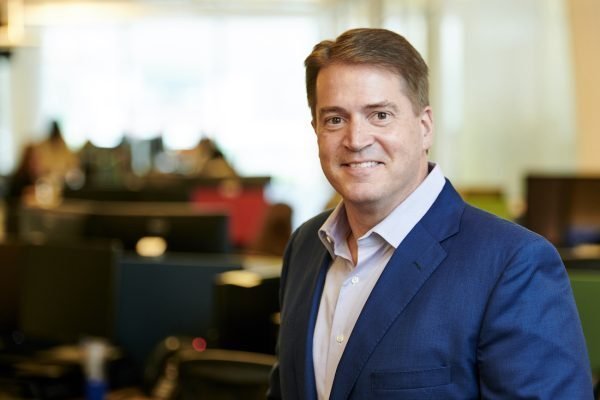I recently went one-on-one with Steve Toy, CEO of Memrise.
Adam: Thanks again for taking the time to share your advice. First things first, though, I am sure readers would love to learn more about you. How did you get here? What experiences, failures, setbacks, or challenges have been most instrumental to your growth?
Steve: My path to Memrise, a UK-based company that helps people acquire a new language via an app using every advantage technology can lend to the process, has been a confluence of several throughlines.
First and foremost, I have been involved in the effort to improve adult literacy for over thirty years. During that time, many explorations have taken place into how we can use technology to improve outcomes.
Second, I have been involved in the tech and app spaces for quite some time. My most recent role prior to Memrise was leader of Apalon, an IAC Company, where I grew the revenue of a portfolio of mobile apps 2.5 times in less than two years.
Third, I have been actively involved in deploying AI technologies for real-world purposes since 2018, when I was part of a team at EY using AI techniques to do the work of accountants.
Finally, I wanted to live abroad once again. I had such a positive experience living in Australia earlier in my career that I wanted to repeat the experience in a different locale.
These experiences made for quite a good fit between me and Memrise.
There have been many experiences that have been instrumental in my growth. The one that comes to mind immediately is the equanimity that comes with living through so many changes in the tech space. From the internet to smartphones to AI, how we do things is constantly changing. At the moment, it is scary and overwhelming, but over time, it is evolution that is mostly good for all of us.
Adam: In your experience, what are the key steps to growing and scaling your business?
Steve: Given that you are specifically asking about growth and scaling, I am going to assume we are talking about a business where product market fit has been achieved. The business has figured out the problem it is solving and for whom it is solving it.
With that essential prerequisite assumed, I would say that the two critical steps to scaling your business are:
A crystal clear understanding of the variable cost of delivering your product. Particularly people costs. It is super easy to overlook the little things that people in your business do to deliver the MVP that got you to the point of wanting to scale. If you don’t understand that, you won’t be able to manage the second all-important step…
Managing cash. Long ago, the chairman of the first Board I served within the tech space told me to remember, “Cash is king; more important than your mother!” Poor cash management is one of the leading causes of good products going awry, though I will never repeat this advice within earshot of my Mom.
Adam: What is your best advice on building, leading, and managing teams?
Steve: Well, this is a big topic. One could write a book on the subject, and many have.
If I can distill this massive topic to its most essential elements, I suggest that one build, lead, and manage one’s team using the principle of Ownership.
One could write a whole book on just this word and have. Jocko Willink is one of those authors who wrote the book “Extreme Ownership,” if one wanted to go deep into the subject.
What ownership means to me, as well as how I lead teams, can be best captured by the following two actions:
Say what you intend to do, try to do it, and report against it. At Memrise, we have a #daily-standup Slack channel where everyone across the globe reports what they did yesterday and what they intend to do today. It takes two minutes and captures the essence of this philosophy.
When things aren’t going your way, ask yourself, “What did I do or not do that led to this situation? What can I do or stop doing to improve this situation?” These two questions instantly put you in an “Ownership Mindset” and give you a proactive footing.
Adam:What are the most important trends in technology that leaders should be aware of and understand? What should they understand about them?
Steve: Leaders should be aware of emerging technologies like AI in the rapidly evolving tech landscape. However, the most important trend that leaders should focus on is not the technologies themselves, but how people within their organizations use these new tools.
Leaders need to understand that the successful integration of new technology is as much about people as it is about the tech itself. If not properly managed, a tsunami of new technologies can lead to various issues, including:
Productivity Paradox: where things take longer as we try to get time-saving devices to do our work more efficiently.
Shadow IT: where unauthorized tools are used to complete corporate tasks, which can lead to…
Privacy Breaches: where PII and IP wind up on unauthorized servers.
Quality Control: where LLMs and other tools unschooled in the culture and specifics of a business are providing work products without proper review.
That’s just the tip of the iceberg on this one.
Adam: What do you believe are the defining qualities of an effective leader?
Steve: As I described earlier, the singular defining quality of an effective leader is Ownership. I believe the essential elements of Ownership include:
Accepting responsibility for the failures as well as the success of the business
Making the objective of the business simple, clear, and understood
Good, transparent, and honest communication with all stakeholders both up and down the chain of command
Decisiveness amid uncertainty. Doing nothing is almost always the wrong course of action, unless it is in reaction to emotional communication/circumstances
Adam: How can leaders and aspiring leaders take their leadership skills to the next level?
Steve: Everyone has different strengths and weaknesses, so once you get to know someone and their leadership style, there is a lot of room for targeted suggestions. However, that doesn’t quite answer the question.
It has been my experience that improving one’s mindfulness is the one skill that makes one better at all the other skills. Specifically, the things that get easier with ever-better mindfulness include:
Developing an Objective View of the State of Affairs: When leaders cultivate mindfulness, they can better observe situations and circumstances objectively.
Cultivating Self-Reflection and Self-Critique: Mindfulness helps leaders examine their thoughts, emotions, and actions critically and without emotion. This is invaluable for pushing past the stories we tell ourselves and getting to the reality of the matter.
Managing Emotions and Reducing Biases: Mindfulness can help leaders learn to observe their emotions to create space between their thoughts and actions, ensuring that impulsive reactions do not drive unwise or unconscious decisions.
There are many other benefits of increased mindfulness, but the ones above are undoubtedly helpful to leaders of every skill and experience level.
Adam: What are your three best tips applicable to entrepreneurs, executives, and civic leaders?
Steve: While I am confident I have nothing new to say on this topic, as an ocean of ink has been spilled over the years, I can tell you three that I have found more useful than others:
As we have discussed, the first tip is embracing the principle of ownership. This makes it to the top of the list for a slightly different reason from the benefits of ownership I described earlier. The most significant benefit of embracing ownership is a feeling that you are in control. If you own your response and reaction to every situation, things don’t happen to you in a way that makes you feel powerless or indecisive.
The second tip is to practice mindfulness. We all spend too much time on the rollercoaster of thoughts and emotions that buffet us daily. When our thoughts and emotions unconsciously capture us, we can’t make our best decisions or produce our best work.
The final tip comes straight from Stephen Covey’s 7 Habits: Begin with the end in mind. I would add that we need to do this all the time with everything we touch, big or small. We need to know why we are doing something so that we can do it well or make the often wise decision not to do it at all.
Adam: What are your best tips on the topics of sales, marketing, and branding?
Steve: My top tip that applies to all three of these disciplines is to know your customer. Everything else gets easier when you are crystal-clear on the problem you are solving and for whom. More specifically:
Sales: Work hard to build honest relationships and trust with your customers.
Marketing: Keep your message simple.
Branding: Tell stories. Stories make everything easier to understand.
Adam: What is the single best piece of advice you have ever received?
Steve: My first job out of college was as a political lobbyist in Australia. One of the first things my boss said to me was, “Don’t write anything down that you are not comfortable seeing on the front page of the Sydney Morning Herald.” This is a very specific manifestation of the more macro advice to “think before you act.”
I also think that this specific application of the advice is all the more important in an age of social media, where timelines distort, and last decade’s tweets are judged with today’s sensibilities.
Perhaps we need a modern-day update to something like, “Like a tattoo, don’t post anything that would embarrass your future self.”









